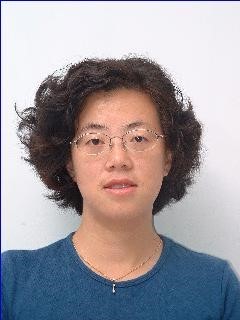
Curriculum Vitae
Prof. HAN Ding-Ding
Biography
Prof. Ding-Ding Han is academic leader of Data Communication and Intelligent Network Systems. She is mainly engaged in the research of ultra-complex network and complex system, intelligent information processing, intelligent Internet of things and CPS, data-driven visualization and other fields. She is director of Ultra-complex Network Science and Smart Systems Lab. Successively served as academic editor and reviewer of Physics Letter A, Plos One, Physica A, Acta Physica Sinica and other top journals of international and domestic comprehensive disciplines, paper review expert of IEEE international conference and member of international conference procedure committee. She has been invited to Boston University, UC Davis, UC Berkeley, the University of Fribourg, and the University of Adelaide for academic exchanges and visiting scholars. Published 2 monographs; She has published more than 50 sci-e papers in Scientific Reports (Nature series), Physical Review series, PLoS series, APS series, IOP series, Elsevier series and other international authoritative journals. More than 60 papers have been published in domestic core journals. The two textbooks were awarded the first prize in the "eleventh five-year plan" textbook competition by Peking University press and the national electronic information excellent textbook award. Under her supervision, twenty-seven graduate students have graduated, including three doctoral students. She now directs a total of 12 graduate students, including four doctoral students. She guided undergraduate and graduate students to participate in the national electronic design competition and "Huawei Cup" graduate electronic design competition, and won the national second and third prizes.
Research Interests
-
Modeling of ultra-complex network & Big data
-
Dynamics of ultra-complex network and its applications
-
Frontier crossover with machine learning
-
AI + Smart city
Academic Positions
-
2011-present Member of council, Shanghai Association for System Simulation;
-
2016 Outstanding member of council, Shanghai Association for System Simulation;
-
2015-2019 Editorial Board, Journal of East China Normal University (Science);
-
2016-2019 Member of Academic Committee and Academic Degrees, School of Information Science and Technology, East China Normal University
- 2020- Member of Shanghai Innovation Center for BeiDou Intelligent Application
Awards
-
 1997 Distinguished female scholar, Shanghai University;
1997 Distinguished female scholar, Shanghai University; -
 2001 Distinguished young lecturer, East China Normal University;
2001 Distinguished young lecturer, East China Normal University; -
 2001 Shanghai teaching achievement award;
2001 Shanghai teaching achievement award; -
 2011 Distinguished scholar, East China Normal University;
2011 Distinguished scholar, East China Normal University; -
 2012 National excellent teaching material award;
2012 National excellent teaching material award;
Education and Working Experience
Education
-
M.Sc., 1993, Shanghai Institute of Applied Physics, Chinese Academy of Sciences, in Nuclear Electronics;
-
B.S., 1990, University of Electronic Science and Technology of China, major in Electronic Information Science and Technology.
Employment and Teaching Experience
-
1993/06-1998/05,Shanghai University,Teaching Assistant;
-
1998/05-2006/01,East China Normal University, Teaching Assistant;
-
2006/01-2011/12,East China Normal University, Associate Professor;
-
2011/12-2019/01, East China Normal University, Professor;
-
2019/01-present, Fudan University, Professor
-
2008/06-2016/09, Department of Communication Engineering, East China Normal University, Director;
-
2002/09-2003/08, Texas A &M University, USA, visiting scholar;
-
2018/02-2019/02, Boston University, USA, visiting scholar.
Teaching
Undergraduate courses:
- analog electronic circuits and their experiments,
- computer networks,
- communication principles,
- signals and systems,
- English for science and technology
Graduate courses for master:
- Complex network theory and its application,
- English for science and technology,
Graduate courses for Ph D:
- Network structure and its dynamics,
- Academic lectures
Publications
Dr. Ding-ding Han has been Principal Investigator of more than 10 research grants from NSF and MOST of China, and has (co-)authored 2 monographs and more than 50 top journal publications, which have received more than 600 ISI citations.
Copyrights 2017 © The School of Information Science and Technology, Fudan University


 Department of Communication Science and Engineering
Department of Communication Science and Engineering Professional Title:Professor
Professional Title:Professor Position:
Position: Email:ddhan@fudan.edu.cn
Email:ddhan@fudan.edu.cn Visiting Address:
Visiting Address: Tel:
Tel: Home Page:
Home Page: